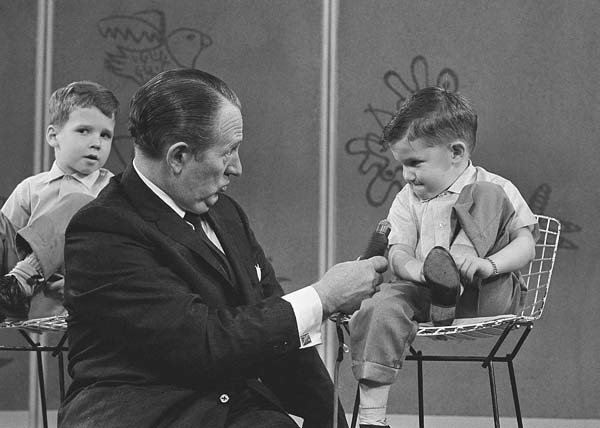Weekly planning usually occurs on Sunday mornings at my upstairs desk where I keep pens and highlighters of multiple colors.
Yontif postponed this session by until Monday, though I knew I had a special opportunity to assuage senior loneliness by immersing myself in different groups on consecutive days.
- Sunday: Simchat Torah Services at my synagogue
- Monday: Platelet donation at Blood Bank
- Tuesday: OLLI Class
- Wednesday: Philadelphia Endocrine Society
- Thursday: Morning minyan at my synagogue
- Friday: Two OLLI Classes
- Saturday: Services at my synagogue
And toss in a flu shot at my pharmacy.
Mostly mixed result, colored perhaps by strains with people scripted differently than me about atrocities in Israel. By I did my best to keep cordial and to interact, if not mingle. Candid, not fully friendly comments are still forms of interaction, which is really the week's agenda.
Scorecard:
Simchat Torah experience somewhat above expectation. Not a lot of me there, about 18 or so.
Hakafot shared with women, who were much less in number. Songs selected by Cantor surpassed the Hebrew school ditties that I had come to expect.
Platelet donation proceeded smoothly. Screening questions changed a bit. My trip to France within the previous month did not disqualify me. I watched Netflix home design show, actually four half-hour episodes. No clogging of line, one minor reposition of needle. Quick stop at canteen for my usual. Afterward, stopped at Cabela's. Saw nothing to buy. Opted not to go out for lunch.
OLLI Class caused some friction. I am not overly fond of the way the instructor presents the class. Teaching us about "good people on both sides " amid asymmetric intentional atrocities while using the
Muslim Brotherhood talking points did not reflect well on his intellect. And his not well received analysis extended the class twenty minutes past closing time. But I did make a YouTube Video of what I thought and he will not be happy with at least one of his student feedback reports.
Before driving to Philadelphia I had a very stimulating session at OLLI given by an expert. I tried to extract more of his expertise at the end, creating some discord in the process. But the Being with People initiative did not come until the end of the day. I had not been to a Philadelphia Endocrine Society session live since Covid, and not at all in a couple of years. I even did not pay my annual dues last year, but resumed this summer. The live sessions had been reassigned to a less accessible location, but are now back to a place to which I am used to driving, as long as it is not very often. My
Waze App meant well, anticipating rush hour bottlenecks. It tried to bypass one near my home by directing me north for two entrances to access the interstate. Then manageable traffic. Ordinarily it would take me to a main road that goes pretty much directly to my destination, though with a lot of traffic lights. Instead, it exited me just past
PHL Airport, directing me through some thoroughfares I do not remember ever driving on before. I got to see the remotest of the PHL parking options and large swaths of the airport at its farthest reaches where private corporate and other non-airline jets take off and land. Eventually return to the interstate, this time with a lot of other cars. It took me to a highway divide where I had to change lanes on short notice, then through Philadelphia's Historical district, a place of very slim one-way streets, but at least in a recognizable grid. Got me to the parking garage where the gate failed. After a few calls on the intercom, an employee let me in, providing me what would turn out to be a defective ticket trying to leave.
Not many people that I knew at the meeting. A couple of old friends, friendly greetings to some new introductions. Beverage server lives near me, taking the same roads and bottlenecks, so we had a short chat about that. Outstanding lecture on
hypoparathyroidism.
Route home by Waze also not what I expected. Were I to commute by car to Center City, I'd probably get used to it, even in the dark for much of the year. One time, I had to keep my attention focused on traffic, stopped delivery trucks, and some interstate access points that the civil engineers could have considered better, but once on the highway past a rather long and eerie on-ramp, getting home went smoothly.
Morning minyan takes place every Thursday at 9AM. I was curious about who would go. The usual suspects, those inner circle men and one other. I was seven. We got nine, but needed ten. The new Rabbi really wanted to repeat the
Amidah and read Torah that morning. He summoned the lady in the kitchen, declaring it a fast day due to Israel atrocities and obviating her the task of making coffee or setting out donuts. In its place she was placed in a sanctuary seat. Then he repeated the Amidah, read Torah, did
kaddish, all the parts that our tradition requires us to have ten men. Nobody said anything. At the end, the President asked me a few things about my trip to France, with another fellow joining in. I had scheduled a flu vaccine that morning, so excused myself.
While I got to Walgreens in time for my appointment, the line at the pharmacy counter was long. The pharmacists and technicians seemed overwhelmed by volume, not only at the counter but also the drive-thru, and what was coming their way from online customers. These folks were not trained by Disney MBAs who understand enough throughput to keep lines flowing. My turn came, my deltoid got injected, and I roamed the aisles for the next fifteen minutes as the pharmacist had asked me to stay on site for safety. Then home. And a Zoom course on thermodynamics followed.
Friday morning I have two OLLI classes, the National Parks first, The Common Man to follow. I made my own coffee, keeping it hot in a thermal mug given to me by a pharmaceutical company in the days when they gave doctors various reminders of which drug the companies wanted us to prescribe to the max. I got there just as the first presentation was to begin. There is a half hour break between the two morning sessions. I sat at a table for a while, sat on the patio for a while. Did not mingle.
For
shabbos morning the two casting directors assigned me two parts. I would lead
shacharit, which I do frequently. And I would chant the
Haftarah, an invitation that is rather infrequent. I prepared the Prophetic portion to decent fluency. The morning worship I do not prepare at all. Instead, since I am already fluent, I select two tunes to insert that differ from what I had done the last time, usually the last two times. And so I did. Rabbi read Torah. And when the Rabbi reads Torah, a congregant gives the sermon about the Torah portion. Despite being a participant, I did not feel inspired. A few handshakes along the way, mostly of a protocol variety. Kiddush banter makes or breaks the morning experience. I drove home broken.
When corporations and other employers try to boost morale and engagement of their staff, they take a number of approaches. Look at the good our organization has done in its history would be one direction. It seems to give a transient boost. The strongest, though, comes from testimonials people receive as feedback for the benefits their personal efforts provided. My congregation approaches zero. There are influencers who matter and consumers who don't. I'm a consumer. I could say the same about the Endocrine Society. As much as I enjoyed the session along with the minor adventure of driving each way, I wasn't a contributor. But platelets, while often physically uncomfortable in the donation chair squeezing a rubber ball and watching Netflix, the people at the donor center are really appreciative of having donors who come on a regular basis. I never see the platelet recipients, only sample pictures of kids on chemotherapy, but I know somebody somewhere is better off for the three hours between leaving my house and returning home.
While the intent was to be with people more than in most weeks, and I succeeded, those experiences mostly made me a taker. The challenge is not only to be a person of genuine value, as platelet donors are, but to matter beyond the protocol handshakes. I did in small ways. Leading worship offered some thought and effort that made our synagogue a place where traditional services are executed by men of proficiency. At the flu shot, I chatted with a lady behind me in line who may have been less lonely from the interaction. I challenged the teachers at each of the OLLI sections. That might have advanced their perspectives on their subjects beyond what they would figure out for themselves.
So it is not so much inserting oneself into the herd as having that herd take a better form because they let me in it. I think it did.























